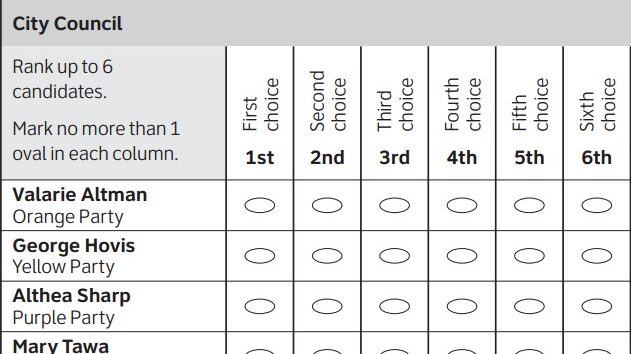ELECTIONS
Jeff Caplan’s Afternoon News: Delay a Presidential election?
Jul 30, 2020, 7:35 PM | Updated: 7:37 pm

FILE: Getty Images
SALT LAKE CITY — It’s possible for a presidential election to be delayed in the United States. But the President can’t delay it. That’s a job for Congress, as mandated by the U.S. Constitution.
The question was raised after President Trump questioned, via a series of Tweets, whether the upcoming presidential election should be delayed over concern of voter fraud.
“It’s simply not going to happen,” University of Utah Law Professor Paul Cassell told KSL Newsradio.
“This looks like talk [by the President],” Cassell told guest host Maria Shilaos. “I’m not really sure it’s a serious suggestion. It’s got triple question marks or something like that.
“I think he’s trying to highlight his concern about voter fraud,” Cassell said.
The President’s tweets
With Universal Mail-In Voting (not Absentee Voting, which is good), 2020 will be the most INACCURATE & FRAUDULENT Election in history. It will be a great embarrassment to the USA. Delay the Election until people can properly, securely and safely vote???
— Donald J. Trump (@realDonaldTrump) July 30, 2020
Mail-In Voting is already proving to be a catastrophic disaster. Even testing areas are way off. The Dems talk of foreign influence in voting, but they know that Mail-In Voting is an easy way for foreign countries to enter the race. Even beyond that, there’s no accurate count!
— Donald J. Trump (@realDonaldTrump) July 30, 2020
Utahns have only to look to their most recent election, the June 2020 Primary Election, for an example of successful mail-in voting, Cassell said.
“We have very common absentee ballot procedures in Utah. And that’s the way the Constitution intended the voting procedures to be set up: Utah sets up its procedures, California and other states set up theirs, and each state then is responsible for determining a way to ensure that votes are accurately cast and accurately counted.”
A video on the vote.Utah.gov webpage explains what the state does to ensure a valid election, including:
- a bar code on the back of each mail-in ballot, which gives a voter credit for voting and assures that voter can only vote once;
- a privacy tab on each envelope, which when lifted by an election worker reveals the voter’s signature. The signature is then checked against signatures on file for the same voter. If it matches, the signature tab is removed, assuring that your vote remains anonymous.
- a verified ballot envelope is opened, and the ballot is removed, folded, and prepared for processing through a scanner, which totals the votes.
The most common reason for a ballot to be rejected is because the ballot isn’t signed, or the signature does not match a signature on file.
Utahns react
Several Utah politicians responded to the President’s tweets on Thursday, including Utah Lt. Gov. Spencer Cox, who, as Lt. Governor, helps oversee the state’s elections;
Re-upping this thread. While no system is perfect, Utah is a model of showing vote-by-mail can be successful and secure. We are happy to advise and assist other states (and we have) to make sure there is no reason to delay a general election. https://t.co/FsBQRNHaxQ
— Spencer Cox (@SpencerJCox) July 30, 2020
The problem is not mail-in voting, the problem is ballot harvesting and mismanagement of election procedures. Thanks to leaders like @SpencerJCox and @Amelia4Utah, Utah has a history of successful mail-in elections and should be looked at as an example of how to do things right. https://t.co/rByBrQSDD7
— Rep. John Curtis (@RepJohnCurtis) July 30, 2020
I do not support delaying the election. Congress sets the election date, not the President.
— Rep. Chris Stewart (@RepChrisStewart) July 30, 2020














